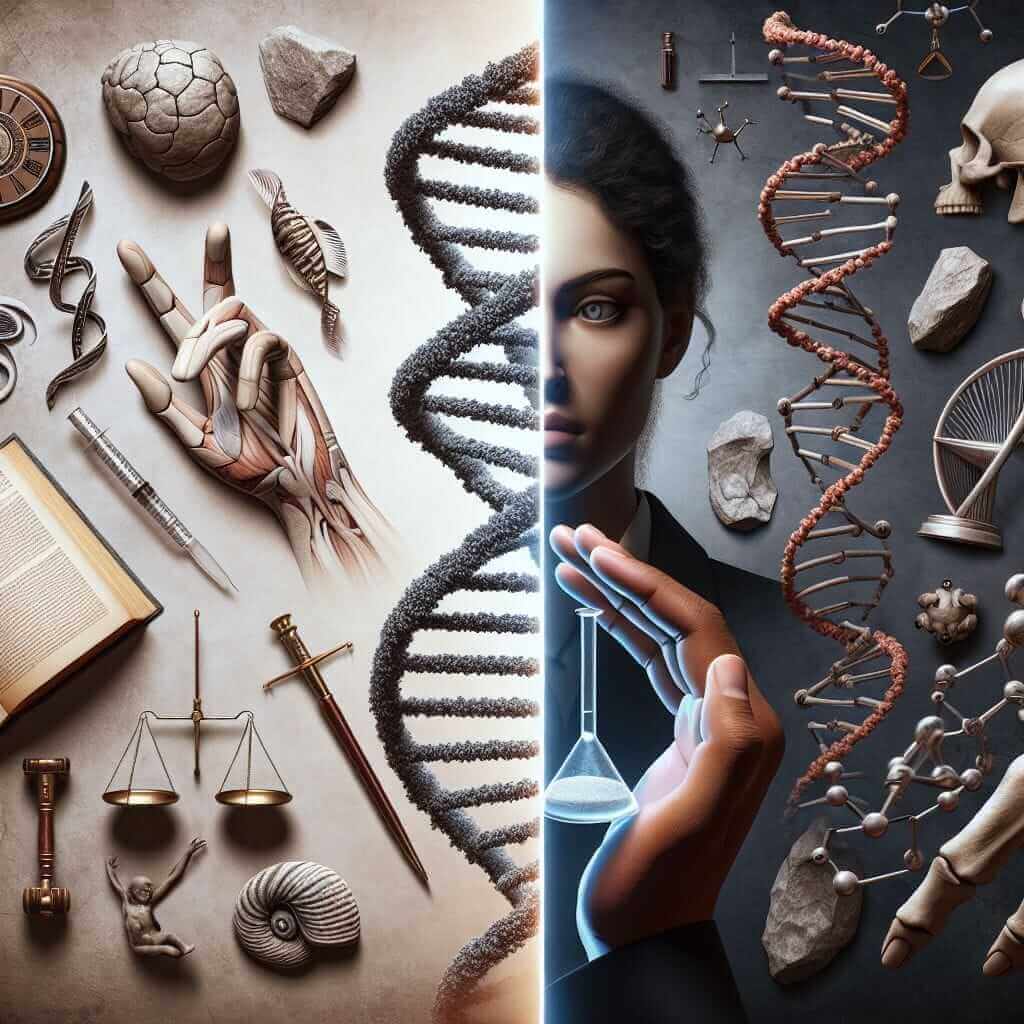The Reading module in the IELTS test can be challenging, especially when dealing with complex and ethical topics like ‘moral dilemmas surrounding human cloning.’ Such topics not only test your reading skills but also your ability to understand and analyze intricate content. Given the controversial and ongoing debates surrounding human cloning, it is a topic that could appear in future IELTS reading tests due to its relevance and frequency in academic discussions.
In this article, we will provide a detailed reading practice based on this theme, create questions mirroring the IELTS format, provide answers with explanations, discuss common mistakes, and highlight challenging vocabulary and grammar.
IELTS Reading Practice: Moral Dilemmas Surrounding Human Cloning
Reading Passage
Title: The Ethical Quandaries of Human Cloning
In recent years, human cloning has stepped out of the realm of science fiction and into the pages of scientific journals. The advent of cloning technology has provoked a myriad of moral dilemmas, ranging from the sanctity of life to the possibility of a genetic underclass. While cloning could potentially offer solutions to infertility and organ shortages, it also raises ethical questions that society has yet to fully address.
One primary concern is the moral status of the cloned individual. Do clones have the same rights as naturally-born humans, and should they be entitled to the same privileges? Another issue is the potential for exploitation. Clones could be created for specific purposes, such as organ harvesting, which dehumanizes them and reduces them to mere commodities.
Moreover, the potential for a genetic underclass is another critical issue. If cloning becomes a widespread practice, there could be a division between those who can afford to clone themselves or their loved ones and those who cannot. This socio-economic gap could lead to a new form of inequality, where genetic superiority becomes a marker of social status.
 human cloning ethics
human cloning ethics
Additionally, the psychological impacts on clones themselves cannot be ignored. Living with the knowledge that they are a replica of another person could lead to identity crises and psychological distress. The sense of individuality and uniqueness, which is a cornerstone of human identity, could be undermined entirely.
There is also the issue of unintended consequences. Cloning is still a nascent science, and unforeseen genetic abnormalities or health issues could arise, posing significant risks to clones’ well-being. The long-term effects of cloning on genetic diversity and the potential for unforeseen mutations remain largely unknown.
Furthermore, religious perspectives often oppose cloning on the grounds that it usurps a role traditionally attributed to a higher power. Many religious groups assert that cloning is unnatural and tampering with human life in this manner is morally unacceptable.
Despite these concerns, proponents of cloning argue that the potential benefits outweigh the risks. Cloning could revolutionize medicine, providing a renewable source of organs and potentially curing genetic diseases. However, until the ethical dilemmas are sufficiently addressed, human cloning remains a highly contentious issue, fraught with moral complexities.
Questions
Multiple Choice
- Which of the following is NOT a concern related to human cloning mentioned in the passage?
- Moral status of the cloned individual
- Potential exploitation for organ harvesting
- Enhanced social cohesion
- Psychological impacts on clones
True/False/Not Given
- Clones would automatically have fewer rights than naturally-born humans. (True/False/Not Given)
- Religious groups uniformly support human cloning due to its potential medical benefits. (True/False/Not Given)
Matching Information
-
Match the following issues with their corresponding descriptions:
- A. Genetic underclass
- B. Psychological impacts
- C. Religious perspectives
Descriptions:
- i. Cloning could lead to emotional and identity issues.
- ii. It challenges moral beliefs about the sanctity of life.
- iii. Cloning might deepen socio-economic inequalities.
Summary Completion
- Fill in the blanks with ONE WORD ONLY:
Cloning technology has come under scrutiny due to ethical issues such as the moral status of clones and their potential ____. Additionally, the possibility of creating a genetic underclass and the ____ impacts on clones pose significant challenges. Religious views also complicate the debate, as many believe cloning is ____ with the natural order.
Answer Keys and Explanations
- c. Enhanced social cohesion – The passage discusses various ethical concerns but does not mention any positive impact on social cohesion.
- False – The passage raises questions about the rights of clones but does not state that they would automatically have fewer rights.
- False – It mentions that many religious groups oppose cloning.
-
- i. B. Psychological impacts
- ii. C. Religious perspectives
- iii. A. Genetic underclass
-
- exploitation
- psychological
- incompatible
Common Mistakes in Reading Sections
- Misinterpreting the Question: Many students fail to read the question properly, leading to incorrect answers.
- Overlooking Key Details: Critical details are often embedded within the passage which can be easy to miss.
- Time Management: Spending too much time on one question can prevent you from completing the section.
Vocabulary for the Topic
- Sanctity (Noun) – /ˈsæŋktɪti/ – The state or quality of being holy or sacred.
- Exploitation (Noun) – /ˌɛksplɔɪˈteɪʃən/ – The action or fact of treating someone unfairly to benefit from their work.
- Socio-economic (Adjective) – /ˈsəʊsiəʊˌiːkɒnəˌmɪk/ – Relating to a combination of social and economic factors.
- Unforeseen (Adjective) – /ˌʌnfɔːˈsiːn/ – Not anticipated or predicted.
Challenging Grammar Points
- Passive Voice: Many points in the passage employ passive structures to emphasize the object of the action.
- Example: “Clones could be created for specific purposes.”
- Hypothetical Conditions: Discussing potential future scenarios often requires the use of conditional sentences.
- Example: “If cloning becomes a widespread practice, there could be a division…”
Tips for a High Reading Score
- Practice Regularly: Familiarize yourself with different topics and question types.
- Expand Vocabulary: A rich vocabulary helps in understanding passages quickly.
- Develop Skimming and Scanning Techniques: These skills are crucial for locating information efficiently.
- Understand Different Question Types: Each type requires a slightly different approach.
By practicing with passages and questions like these, you can improve not only your reading comprehension but also your ability to tackle complex topics effectively. Good luck with your IELTS preparation!


